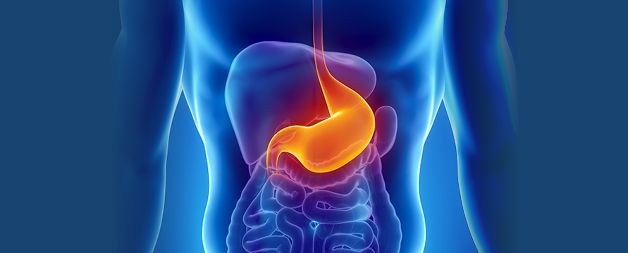
The Second Brain
Gut health has always been in the background. When we think about being healthy, we instantly make associations with the brain, heart, liver, kidneys, prostate and more. However, we rarely step back and think about our gut health or how it might affect our overall well being.
Well, as it turns out, gut health is very important and can affect the entire body. Very notably, it can also affect our brain and emotions...
Your gut and brain are connected!
Most people assume that gut health is related to food digestion and bowel movement. However, more and more research suggests that your gut health can profoundly affect your brain, your thoughts and emotions.
Have you ever felt so scared or nervous that you had this uneasy, almost “gut-wrenching” sensation? Or maybe you saw a girl or a guy you liked and you felt as if you had butterflies in your stomach?
These aren’t just sayings that we hear, but actual feelings because your gut is sensitive to emotions and that is primarily thanks to its connection with your brain. Emotions like anger, anxiety, sadness, excitement and nervousness can all trigger different feelings in the gut. For example; thinking about tasty food can cause your gastrointestinal tract to release the hormone ghrelin (also known as the “hunger hormone”) which in turn makes you feel hunger, making your gut secrete gastric acid and can even make you produce more saliva in your mouth. All of that by just thinking of having a burger!
This is because the brain and the gut are tightly connected via the vagus nerve. However, it’s worth noting that this “connection” is not the same on both sides. Meaning, it is stronger going from the gut to the brain than from the brain to the gut.
What does that mean?
Well, it mostly means that gastrointestinal issues are more likely to be the cause of mental and cognitive problems, rather than the other way around.
Problems that poor gut health can cause are depression, anxiety, elevated stress levels, irritability, decreased cognitive performance and many more. However, it’s still likely that such issues can cause gastrointestinal distress. For example, being very stressed out, angry and anxious all the time can wreak havoc on your gut health. On the other hand, feeling happy, content and calm will likely have a positive impact on your gut.
Most of us have experienced some gastrointestinal distress in our lives for no apparent reason and it’s worth considering how our emotions and stress might be the cause of that.
Stress levels and proper GI functioning
Now that we know how tightly connected our brain and gut are, it’s a good idea to consider how our emotions and stress levels can impact our gastrointestinal tract on a daily basis.
For example, feeling nervous because you need to speak publicly or make a presentation can make you feel as if you had butterflies in your stomach. Feeling angry or scared can make you feel as if your stomach had curled in a ball.
So we understand that these feelings aren’t imaginary. Human physiology is a very complex science and everything works together and is influenced by numerous other factors. All of that makes us what we are.
What are some takeaways?
Among the many other negatives that excess stress leads to, it can also affect movement in our GI tract, make us more susceptible to infections and inflammations and lead to certain gastric diseases.
Negative emotions can cause GI distress. Anger, anxiety and nervousness can lead to the development of certain cancers and gastric diseases. Positive emotions, on the other hand, can influence our gut health in a good way and offset some symptoms of GI distress.
With all of that in mind, when we aim to improve either our mental or gut health, we should also consider the other side and how it might affect our results. For example, individuals with GI problems can benefit from dealing with depression, anxiety and excessive stress.
Individuals with mental problems, on the other hand, can benefit from improving their gut health with different tactics such as improving their diet, exercising more and avoiding antibiotics that are well-known as killers of good bacteria in the gut.
References:
Mind-altering microorganisms: the impact of the gut microbiota on brain and behaviour. Cryan JF, Dinan TG. https://www.ncbi.nlm.nih.gov/pubmed/22968153
From gut dysbiosis to altered brain function and mental illness: mechanisms and pathways. G B Rogers, D J Keating,R L Young, M-L Wong, J Licinio, and S Wesselingh. https://www.ncbi.nlm.nih.gov/pmc/articles/PMC4879184/






Comments